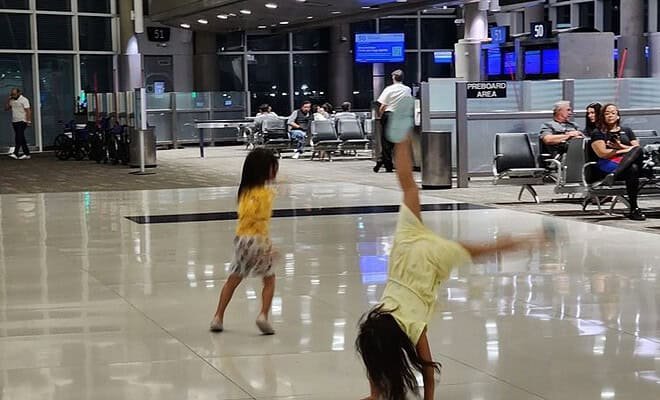Certain Uncertainties

While brainstorming ideas for this week’s article, I thought about current events in our country. They are hard to miss. It seems that COVID-19 was a mere appetizer in a year of national upheaval and unrest. Of course, as I write this, it is Election Day. But what is there to say about it? The pundits have expressed their analyses, opinions, and helped to smear the political mud all across our nation. As of this moment, while writing this the election hasn’t come to a close. I don’t know what will happen. It seems that no matter who wins, there will be added turmoil to a very turbulent year. It could be that by the time this article is published, the nation will be socially and politically on fire, and riots and violence once again take top billing in the news.

Photo courtesy of Gerd Altman from Pixabay
I hope not. I would like to think people have more logic and common sense than to resort to violence. But that hope has been proven misplaced in the past year, so I am not optimistic. What all my pondering made me realize is that nothing is certain in our world. I take slight comfort in the fact that this ever-present uncertainty isn’t a new state of being. Benjamin Franklin pointed it out over two hundred years ago:
“Our new Constitution is now established, everything seems to promise it will be durable; but, in this world, nothing is certain except death and taxes.”
~Benjamin Franklin
While we have expectations of social, economic, and national durability, there is no way to uphold promises to protect it. The only thing in life guaranteed is the fact that nothing stays the same. People change, laws are amended, and nations rise and fall. Where is American in all of this? Who can say? Your guess is as good as the next person’s. Inside the whirlwind of politics, COVID-19, riots, lootings, and social upheaval there is only uncertainty. So how can we mentally brace ourselves for this? How do we teach our children to act and react in times where “death and taxes” are the only foundational bricks we can rely on? How do we avoid worrying ourselves into poor health and live full and meaningful lives? We have to change our focus. We may not be able to change national circumstances, but we can make changes on a smaller scale. We can positively impact our family, friends, co-workers, neighbors, and strangers we meet in the store.
1. Gratitude

Photo courtesy of Joberto Aquino Aquino from Pixabay
One of my favorite mottos is “Gratitude unlocks the fullness of life.” If you don’t believe it, then you obviously haven’t tried it. We live in a time when people don’t understand gratefulness. People want more. There is a feeling of entitlement. The problem is when you get something for nothing (money or effort), you take it for granted. If you never have to put out energy, time, or expense for what you receive, its intrinsic value is lost. When the value is lost, the satisfaction is removed, and then you want more. It is a vicious circle. The remedy for this is simple: be thankful for everything that comes your way. Whether it is a sunny day, a smile from a stranger, a stick of gum from a co-worker, or a raise, you can be thankful. It is an instant mood-booster. And even better: it is contagious.
2. Find The Silver Lining

Photo courtesy of Oberholster Venita from Pixabay
At the risk of being accused of Pollyanna Syndrome, I have to encourage this strategy. There is nothing perfect in life. However, if we find the good in things, then our attitude can change. Is it raining again? So, good. We need water. Did you have to scrape frost off your windshield? That means you have a car to drive. For every negative thought, there is an equal and opposite positive thought. Not exactly Newton, I’m sure, but the theory is sound. More good news on this one: it is also contagious.
3. Manners

Photo Courtesy of MorningbirdPhoto from Pixabay
This is a lost art in many places. Remember the good ol’ days when we were taught things like, say “please,” “thank you,” “excuse me,” and “I’m sorry”? That may seem old and antiquated, but common courtesy goes a long way. You don’t have to agree with someone in order to be courteous. Here’s the piece of advice that has been forgotten: “If you don’t have anything nice to say, then don’t say anything at all.” Can you imagine what a better place social media would be if people remember that? Politics? The media? Without name-calling and mudslinging, we might actually have a chance at hearing real news instead of false news. By the way, good manners are contagious too.
“People try nonviolence for a week, and when it ‘doesn’t work,’ they go back to violence, which hasn’t worked for centuries.”
~Theodore Roszak
4. Smile. It Won’t hurt.

Photo courtesy of Kranich17 from Pixabay
Have you ever heard someone say, “I don’t trust that person. They smile too much,”? We should all strive to be that smiling face. In a time when frowns, scowls, and furrowed brows are worn more than masks, a smile is a welcome reprieve. Smiling is an action that can change your attitude. Shouldn’t we all try and be that person whose smile lights up a room? A genuine, heartfelt smile is a gift to others. And yes, you guessed it, it is contagious.
We cannot predict the future, whether good or bad. However, amidst the certain uncertainties of life, we can be a positive force, a light in the dark, a person who can help create positive change without hurting others. Everyone faces challenges in their life. One way we can help to lighten a burden, even if it is just for a moment, is to show gratitude for the things we enjoy, show manners to each other, find and enjoy the silver linings, and smile. It won’t hurt.
Nonviolence is a powerful and just weapon . . . which cuts without wounding and ennobles the man who wields it. It is a sword that heals.
~Martain Luther King Jr.










